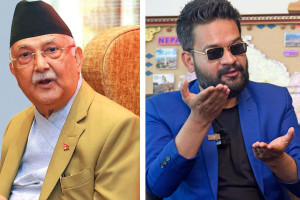Columns
Can democracy and populism coexist?
Populism’s modern form has a tendency to leverage division rather than unity.
Asinur Reza
When defining democracy, the words of Abraham Lincoln—"government of the people, by the people, for the people"—resonate universally. Similarly, Winston Churchill's pragmatic observation reminds us that while democracy may be flawed, it surpasses all other forms of governance attempted throughout history. Democracy's appeal lies in its grounding in the will of the people, yet its implementation varies widely. Like the societies it governs, democracy reflects diverse cultures, histories and local dynamics.
Democracy, though globally dominant since the fall of communism, is far from a one-size-fits-all system. Diverse societies require governance tailored to their unique needs, but certain universal principles must anchor any democratic system. Democracy is not simply the will of the majority; it must safeguard freedom of speech and association, uphold the rule of law and protect the rights of all, including minorities. While free, fair, inclusive and regular elections are essential, they alone do not guarantee democratic governance. Without robust checks and balances, elected governments can misuse power or drift into authoritarianism. To ensure accountability, democracy requires the separation of powers among legislative, executive and judicial branches, supported by independent media and civil society acting as vigilant watchdogs.
Over the past decade, as concerns about democracy's global decline intensified, the recently former US President Joe Biden sought to reaffirm America's self-proclaimed historical role as a champion of democratic values. He initiated the Summit for Democracy, inviting hundreds of nations from across the globe (excluding Bangladesh multiple times). Many analysts viewed the summit as a strategic effort to counter China's rising influence and highlight its undemocratic governance. In response, China published a white paper titled, China: Democracy That Works, asserting that its governance model aligns with democratic principles. However, the ordinary people of China do not have the opportunity to directly elect their leaders. Interestingly, they do not seem to be much concerned about this. Nevertheless, it is for Chinese citizens to decide what kind of democracy best suits their nation. As Mahatma Gandhi aptly noted, "The spirit of democracy cannot be imposed from without. It has to come from within."
The term "democracy" has become so universally admired that even authoritarian regimes hesitate to reject it outright. North Korea, officially the Democratic People's Republic of Korea (DPRK), exemplifies this paradox. Despite being one of the world's most repressive and isolated regimes, ruled by a single family for over 70 years, it conducts regular elections where citizens cast votes by secret ballot. However, these elections are purely symbolic, offering only one candidate on the ballot. The scarcity of reliable information about North Korea further obscures the true nature of its political system.
The assumption that democracy would flourish universally after the Cold War has been tempered by reality. Instead of converging towards liberal democracy, many nations have adopted diverse democratic systems, some of which deviate significantly from democratic fundamentals. One of the greatest challenges to democracy today is the rise of populism. Historically, populism began as a movement advocating for the masses against elite rulers. In its modern form, however, it often leverages division rather than unity. Populist leaders exploit religion, nationalism and cultural identity to manipulate emotions and garner support. This rhetoric often lacks substantive vision, instead deepening societal divisions and marginalising dissent.
In South Asia, populism frequently intertwines with religion and nationalism, shaping political discourse through identity politics that deepen societal divisions. Politicians often exploit religious sentiments and nationalist rhetoric to consolidate support, as evident in India's Hindu-nationalist politics and Pakistan's Islamist-driven narratives. Bangladesh presents a distinct case, where cyclical anti-India and anti-Pakistan sentiments reflect a hybrid populist strategy. While these tactics effectively mobilise public support, they often divert attention from pressing governance issues, exacerbate polarisation, and marginalise minorities. Once in power, populist leaders tend to bypass checks and balances, concentrating authority under the guise of acting for "the people." This approach weakens democratic institutions, targeting independent judiciaries, free media and civil society while relying on propaganda and hate speech to suppress dissent. If left unchecked, populism risks undermining the very democratic structures it claims to uphold, as evidenced by recent regimes across the region.
A key distinction between democracy and populism lies in their approach to pluralism. Democracy balances majority rule with protections for minority rights and dissenting opinions, embracing diversity as a cornerstone of governance. Populism, by contrast, often prioritises the will of the majority, viewing minority protections or institutional checks as obstacles to fulfilling "the mandate of the majority."
However, populism is not inherently harmful. When strategically managed, it can drive reforms within democracy, bringing attention to neglected issues and challenging entrenched elites. Then again, unchecked populism risks concentrating power, undermining institutional integrity and sidelining dissent.
Populism, as an integral part of democracy, holds a dual nature: It can strengthen democratic participation but also threaten its core principles when left unregulated. Democracy must transcend populist impulses, maintaining its commitment to inclusivity, accountability and institutional safeguards. American author James Bovard's cautionary words, "Democracy must be something more than two wolves and a sheep voting on what to have for dinner," emphasise the need to protect minority rights and uphold systemic checks and balances.
Reza is a writer and development professional.
The Daily Star (Bangladesh)/ANN




 20.12°C Kathmandu
20.12°C Kathmandu















